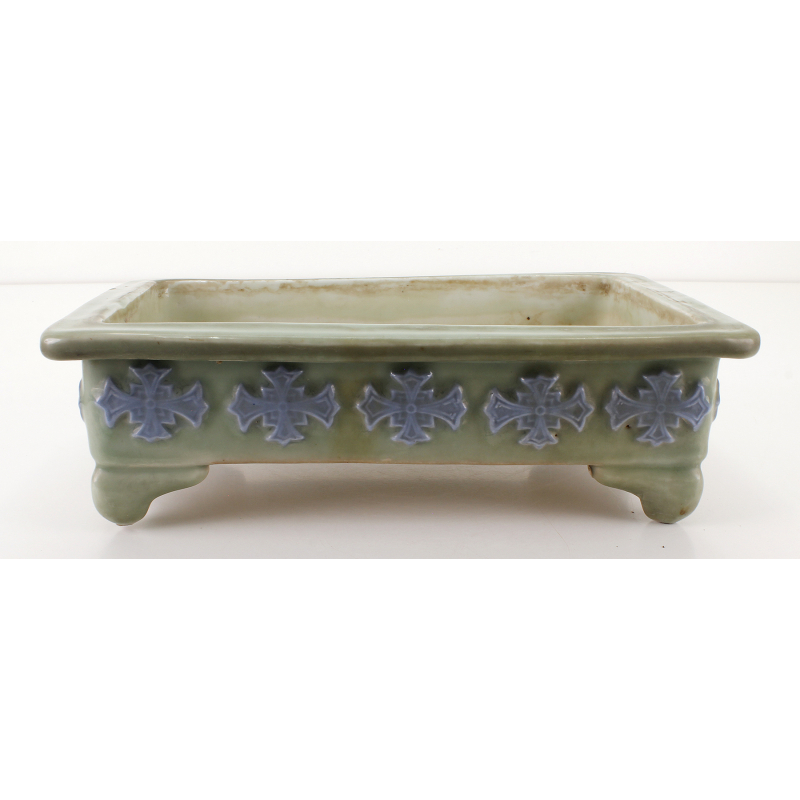






Traditional Seto Ikebana pot, celadon glaze (seijii). Bulb feet.
Seto pottery production, dating back to at least the 10th century, flourished during the Kamakura period (1185-1333). A local artisan, Toshiro Kato, after studying porcelain-making techniques in China, established his kiln in Seto. The discovery of the high quality clay that existed in the region was decisive for its settlement. This ceramist's legacy is known as "Old Hedge" (古瀬戸). Later, during the Edo period (1603-1867), another important figure emerged: Tamikichi Kato. He brought advanced porcelain techniques from Arita in Kyushu, further elevating Seto's reputation. The pottery industry received financial backing from the ruling Owari clan, after whom it is also named. This support guaranteed the prosperity of the area until at least the end of the Meiji period (1868-1912). When Japan opened to the world and especially after World War II, Seto ceramics gained international recognition.